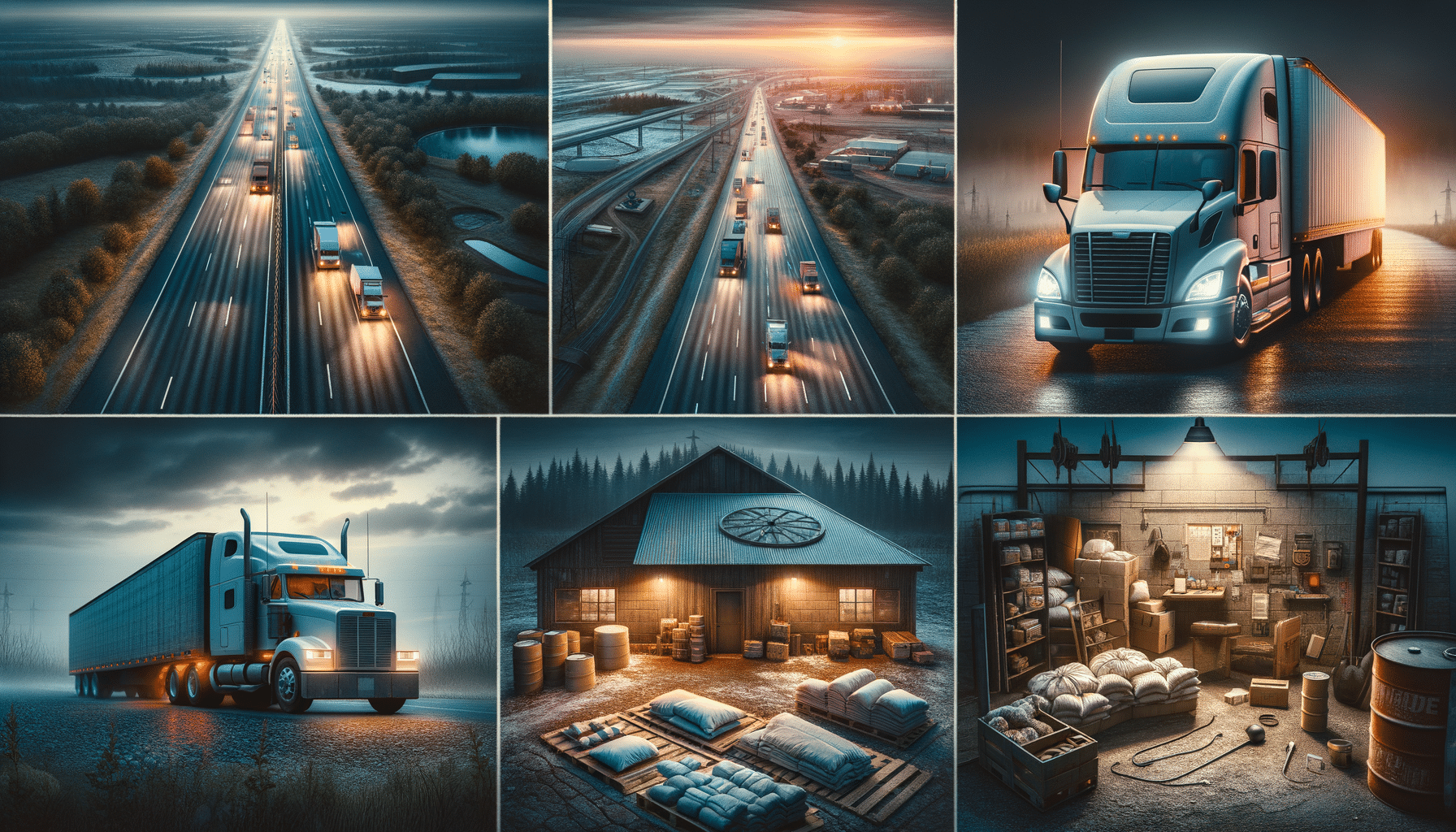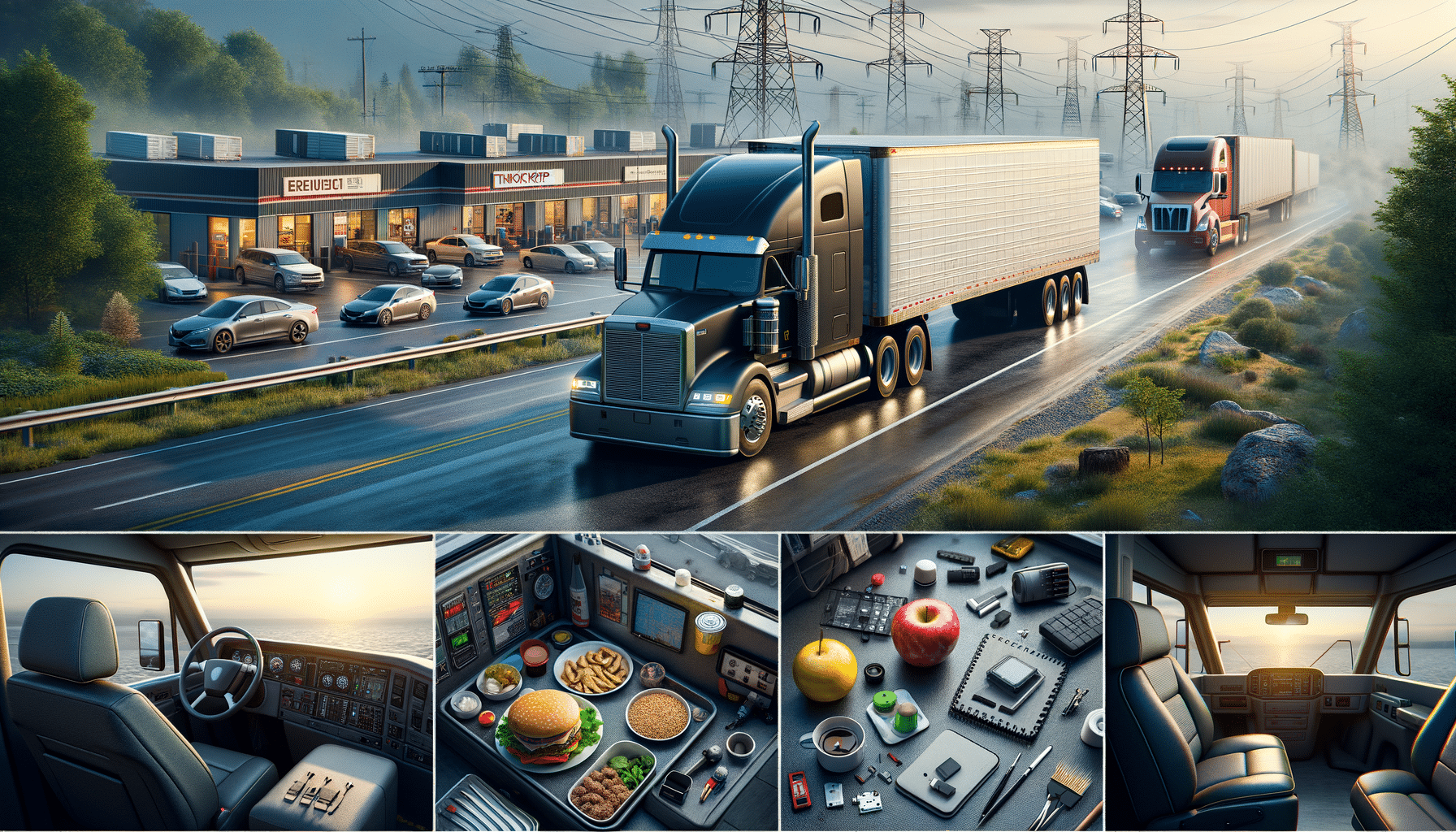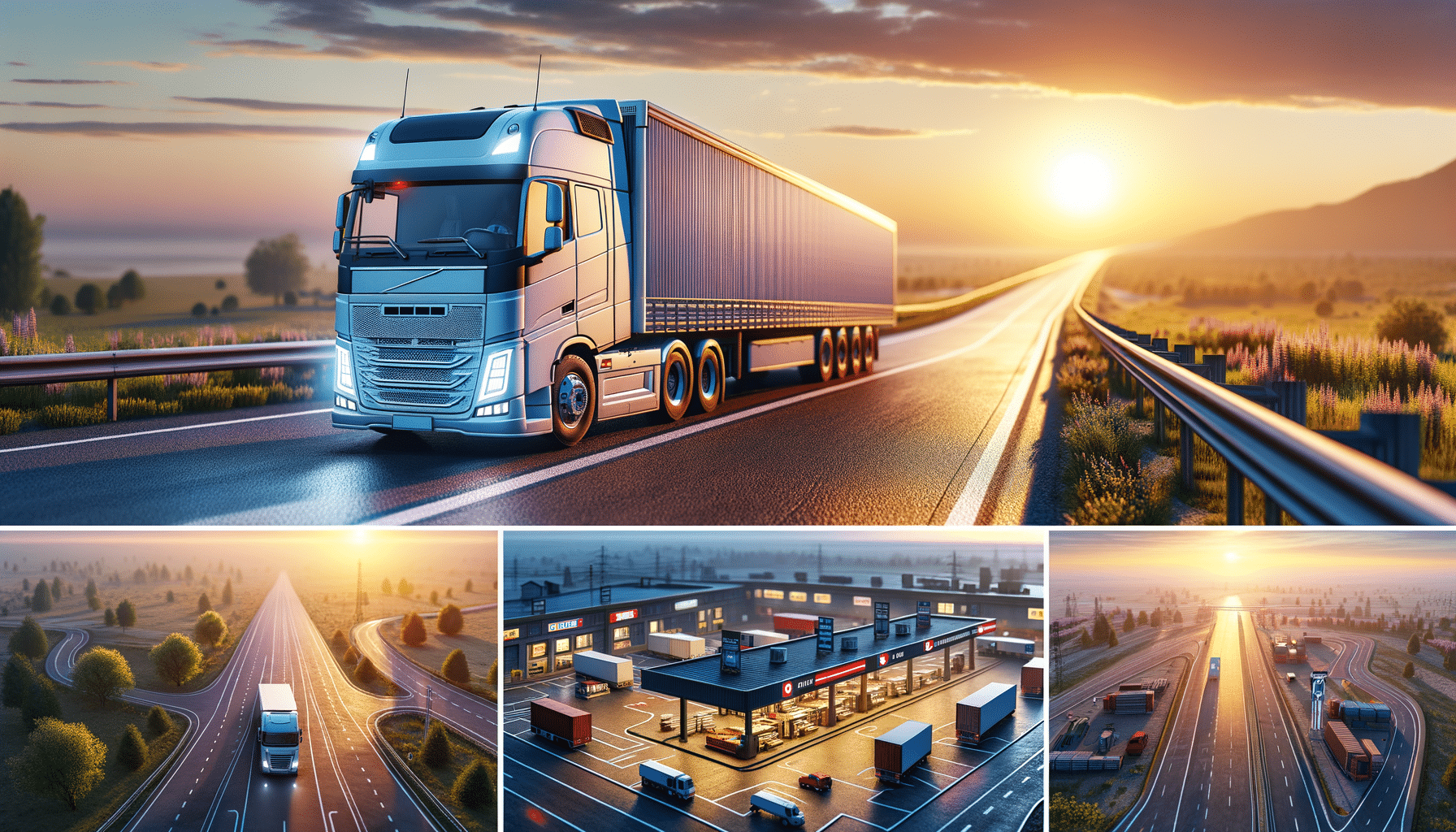
Unbelievable Life Of A Truck Driver
The Role of a Truck Driver in Modern Society
Truck drivers are a crucial component of the modern economy, often regarded as the lifeblood of commerce. Their role extends far beyond merely transporting goods from one location to another. By facilitating the movement of products across vast distances, truck drivers ensure that store shelves remain stocked, factories receive raw materials, and consumers have access to a wide variety of goods. The significance of truck drivers can be observed in the seamless operation of supply chains, which are vital to economic stability and growth.
In today’s fast-paced world, the demand for timely delivery has increased, making the role of truck drivers even more critical. They are responsible for meeting tight schedules and adhering to strict regulations, ensuring that goods are delivered safely and on time. This responsibility requires a high level of skill and knowledge, including an understanding of logistics, navigation, and vehicle maintenance.
Moreover, truck drivers contribute to the economy by supporting industries such as manufacturing, agriculture, and retail. Without their efforts, many businesses would struggle to operate efficiently. As the backbone of the transportation sector, truck drivers play a pivotal role in supporting trade and commerce. Their work not only impacts the economy but also affects the daily lives of individuals, highlighting the importance of their profession in modern society.
Understanding the Dynamics of Truck Stops
Truck stops serve as essential hubs for drivers, offering a range of services and amenities that cater to their unique needs. These stops are strategically located along major highways and routes, providing a place for drivers to rest, refuel, and refresh during long journeys. Understanding the dynamics of truck stops is crucial for appreciating the support they offer to the trucking community.
One of the primary functions of truck stops is to provide a safe and secure environment for drivers to park their vehicles. With designated parking areas, drivers can take necessary breaks without worrying about the safety of their trucks and cargo. Additionally, truck stops often feature amenities such as showers, laundry facilities, and dining options, allowing drivers to attend to personal needs and maintain their well-being on the road.
Beyond basic services, truck stops also foster a sense of community among drivers. They serve as meeting points where drivers can share experiences, exchange tips, and offer support to one another. This camaraderie is vital in an industry where drivers often spend extended periods away from home, facing isolation and long hours on the road.
The evolution of truck stops reflects the changing needs of the trucking industry. Many modern truck stops now offer advanced services, including fitness centers, entertainment options, and even medical facilities. These enhancements demonstrate a commitment to improving the quality of life for drivers, ensuring they have access to the resources they need while on the road.
The Challenges and Rewards of Truck Driving
Truck driving is a profession that comes with its own set of challenges and rewards. Understanding these aspects provides insight into the lives of those who choose this demanding yet fulfilling career. One of the primary challenges faced by truck drivers is the long hours spent on the road, often requiring them to be away from family and friends for extended periods. This can lead to feelings of loneliness and isolation, which drivers must learn to manage effectively.
Another significant challenge is the physical and mental demands of the job. Drivers must remain alert and focused for long stretches, navigating various road conditions and weather patterns. This requires a high level of concentration and endurance, as well as the ability to adapt to changing circumstances quickly.
Despite these challenges, truck driving offers numerous rewards that attract individuals to the profession. One of the most appealing aspects is the sense of independence and freedom that comes with the open road. Drivers have the opportunity to travel across regions, experiencing different landscapes and cultures along the way. This sense of adventure is a significant draw for many who choose truck driving as a career.
Additionally, truck driving can be financially rewarding, with competitive salaries and benefits offered by many companies. The demand for skilled drivers remains high, providing job security and opportunities for advancement within the industry. For those who thrive in a dynamic and ever-changing environment, truck driving offers a fulfilling and rewarding career path.
The Impact of Technology on Truck Driving
Technology has significantly impacted the trucking industry, transforming the way drivers operate and enhancing their efficiency. The integration of technology into trucking has introduced various tools and systems that aid drivers in their daily tasks, improving safety and productivity.
One of the most notable technological advancements is the use of GPS and navigation systems. These tools provide real-time information on routes, traffic conditions, and weather patterns, allowing drivers to plan their journeys more effectively. By optimizing routes, drivers can reduce fuel consumption and minimize delays, contributing to overall efficiency.
Additionally, technology has improved communication between drivers and dispatchers. With the use of mobile communication devices, drivers can receive updates, report issues, and stay connected with their teams while on the road. This connectivity enhances coordination and ensures that drivers have the support they need to complete their tasks successfully.
Safety is another area where technology has made a significant impact. Advanced safety features such as collision avoidance systems, lane departure warnings, and electronic logging devices help drivers maintain compliance with regulations and reduce the risk of accidents. These innovations not only protect drivers but also enhance the safety of other road users.
As technology continues to evolve, the trucking industry is poised to benefit from further advancements, including autonomous vehicles and smart logistics systems. These developments promise to revolutionize the industry, offering new opportunities and challenges for drivers in the future.
The Future of Truck Driving
The future of truck driving is shaped by various factors, including technological advancements, regulatory changes, and evolving consumer demands. As the industry continues to evolve, drivers must adapt to new trends and challenges to remain relevant and successful in their careers.
One of the most significant trends shaping the future of truck driving is the development of autonomous vehicles. While fully autonomous trucks are not yet a reality, advancements in this area are progressing rapidly. These vehicles have the potential to revolutionize the industry by reducing the need for human drivers and increasing efficiency. However, this also raises questions about job security and the role of drivers in an increasingly automated world.
Regulatory changes also play a crucial role in shaping the future of truck driving. Governments are implementing stricter regulations on emissions, safety standards, and working hours, which drivers must comply with to operate legally. These changes require drivers to stay informed and adapt to new requirements, ensuring they remain compliant and competitive.
Consumer demands are another factor influencing the future of truck driving. With the rise of e-commerce and the expectation for fast delivery, drivers must be prepared to meet these demands efficiently. This requires a focus on logistics, route optimization, and time management to ensure timely deliveries.
Despite these challenges, the future of truck driving remains promising. The industry continues to offer opportunities for growth and innovation, with drivers playing a vital role in the global economy. By embracing change and staying informed, drivers can navigate the evolving landscape and continue to thrive in their careers.


